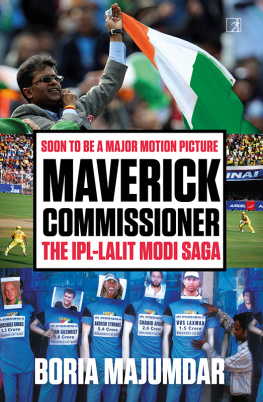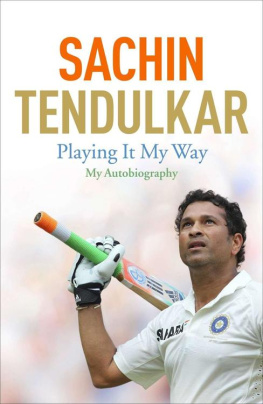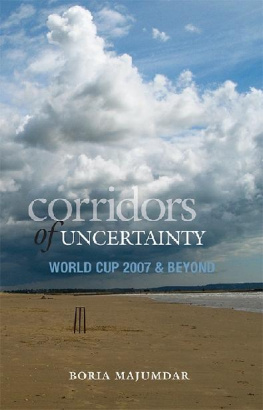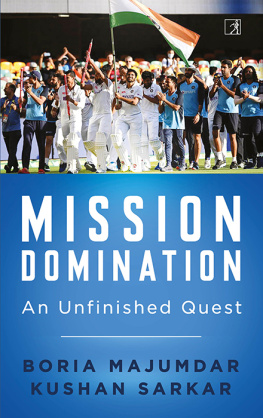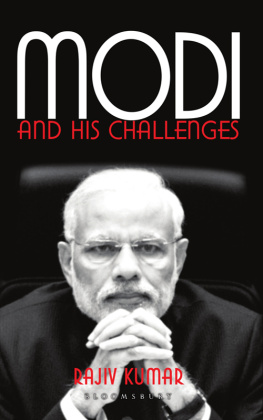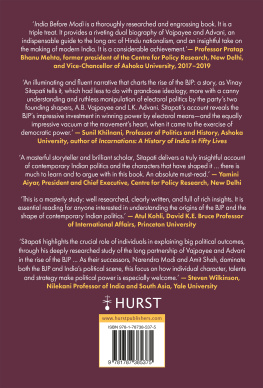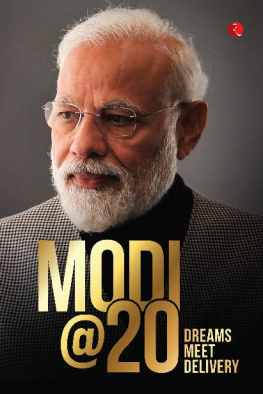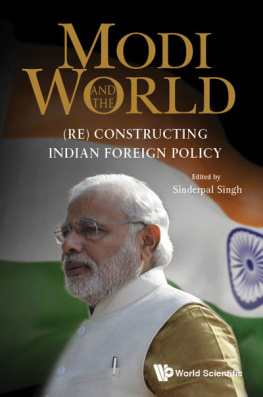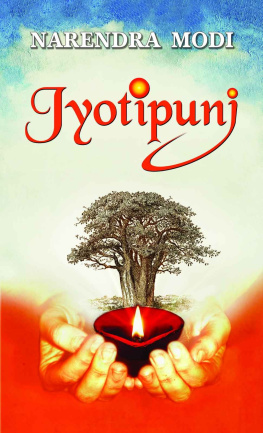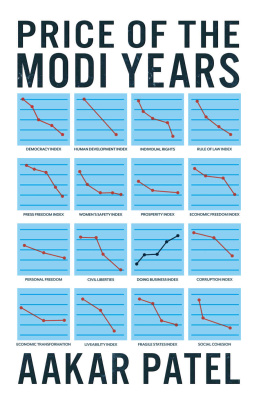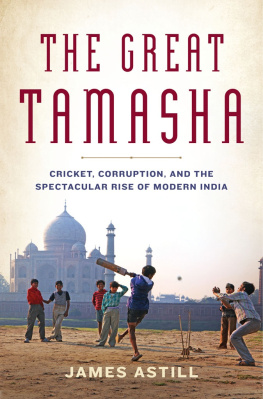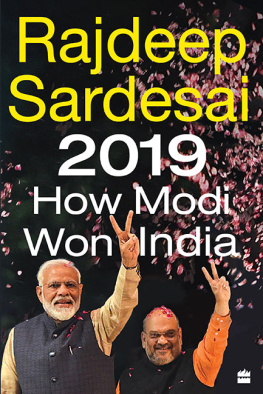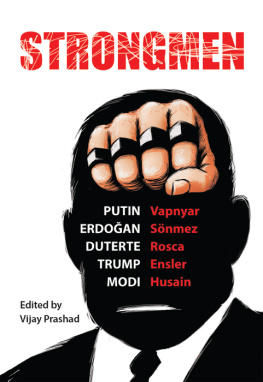
MAVERICK COMMISSIONER
MAVERICK COMMISSIONER
THE IPLLALIT MODI SAGA
Boria Majumdar

Aisha, who is turning into quite an IPL fan!
AUTHORS NOTE
8 April 2008. People were streaming in from all over the city to the Chinnaswamy Stadium in Bengaluru to catch a glimpse of world crickets latest innovation. No one really knew what it would turn out to be. While most were aware that it was a heady cocktail of entertainment and cricket, for some it seemed a perfect night out for a few hundred rupees. What could be better than watching Shah Rukh Khan and Virat Kohli together over a three-hour period with some excellent cricket to go alongside?
For the players and franchise owners, however, it was different. For players it was a life changing moment. For the owners, they were for the first time investing in something, which was just an idea. There was no physical asset like a stadium that they would be owning. All they were investing in was a vision. A concept that allowed them to buy and sell players and create a template, which over a period of time would define how world cricket was to be governed. In sum, no one really knew what they were getting into.
Neither did I. As someone who has covered Indian cricket for more than two decades, it was natural Id be there to make sense of what was unfolding. Try to make sense of it all. Was the IPL there to stay? Would it really take off? How did it all work? How had Lalit Modi gone about it? These were questions I needed answers to. It is fair to say Modi himself wasnt convinced about how many bids he would get ahead of the first season. Thats why he had reached out through personal contacts to all of Indias leading corporates and had invited them to the bidding. We got a call from him two days before the bids were to be opened. While the rule was that bids were to be submitted 48 hours before, Modi was making these calls because he was unsure of the response. I was asked by Saharasri Subrata Roy to travel personally and put in a bid. In fact, I handed the bid myself to Lalit Modi and he accepted it the day before the bidding. We had bid for two cities, our first bid was for Kolkata and second was for Kanpur. However, just before the bids were opened a couple of the other bidders objected to our bid saying we were late and the bid couldnt be termed legal. Whether this was done deliberately or if it was stage-managed I dont know. But what I can tell you is that had our bid been deemed legal we would have owned the Kolkata team for we had put in the highest bid, said a very senior leader from Sahara India. How and why Lalit accepted a late bid only to disqualify it later is not something I have an answer to. Besides Sahara, two other bids, that of ICICI Prudential and the Future Group, were also cancelled for not being on time.
Having followed Modis career in cricket administration closely, it was only natural Id want to chronicle the story of the IPL. Lalit Modi loved a spectacle, and the IPL was the mother of them all.
While the first season could pass off as novelty, for a brand to stay resilient in its third year with a second season in South Africa thrown into the mix said something about it. The question was why is it that the IPL continued to sell? Why and how could teams get multiple brands on board year on year? What was the attraction? What was Modi doing to make things work? With so much cricket played round the year, what is it about the IPL that made it the most watched cricket tournament in the world?
And yet in the middle of all this success, problems had started. Modi was losing ground and by the end of season three, was forced out of the league that he had created and nurtured. He left India and hasnt returned since. How did things go all wrong for him? Whats the back story? Can he ever make a comeback and how difficult has it been for him to stay away?
This book is my attempt in trying to piece together the entire story. I dont intend to judge Lalit Modi. Neither do I intend to take sides. This book is not about whether Modi was right or wrong. The book is about facts. The untold story of the IPL and its founder. What really happened and how it all happened. Thats what I have tried to do. Judgment is best left to the readers.
BORIA MAJUMDAR
Kolkata, March 2022
INTRODUCTION
I t was June 2013, just weeks after the spot fixing scandal in the IPL and the controversy was still fresh in peoples minds. India was in England to play the ICC Champions Trophy and much was riding on how M.S. Dhoni and his team fared in the tournament. A good performance would help counter the growing clamour of negativity and douse the fire that had spread in the wake of the scandal. There was huge media attention and it had only heightened on the eve of the IndiaPakistan match at Edgbaston in Birmingham. In normal circumstances, India versus Pakistan is the mother of all sports rivalries and against the backdrop of the spot fixing controversy, it had only gained in significance.
The match had turned into a global spectacle of sorts. Media from around the world had trooped into Edgbaston and every seat was sold out. Television audience for the game was expected to be the highest and in every sense it was an occasion for Lalit Modi to make an appearance. Modi, removed from the IPL and suspended by the BCCI, was in exile in London mulling over his next move. His issue was still alive in the power corridors of the BCCI and imposing a life ban on him was only a matter of time. Modi, more than anyone else, was aware of it. It was institution versus an individual and the result was a foregone conclusion.
For Modi, the spot fixing scandal was an opportunity to get even with the BCCI and demonstrate to the world that the Board was unable to protect the sanctity of the IPL within three years of him leaving the scene. Modi had continued to be defiant and brazen even in exile and in the wake of the scandal was turning vocal and aggressive as some of his statements bear testimony. The BCCI had lost credibility and as the guardians of the sport had failed in guarding the IPL from being targeted. How could Modi let go of an opportunity of getting even with the men who had removed him from a position of supreme power?
I had this inkling he wouldnt miss the opportunity to be visible on the occasion of an India versus Pakistan match and target the BCCI while he was there. He loved attention and this was a stage bigger than most. He wouldnt have to do much and just turn up. In fact, he was a parallel match in himself and the moment he arrived every media present would want a sound byte. He was sure to consume newsprint and put across his side of the story. And it would also be a statement. That he wasnt scared and hadnt run away. That he was still the conscience keeper of the BCCI and the custodian of the IPL, a property he had created and nurtured.
It was a kind of gut feel that Modi would come. I could be wrong also but as a journalist you had to back your impulse. Modi was a parallel story and could be a headline. And it wasnt me alone. A colleague of mine, Debasis Sen, was actually waiting outside the main entrance at Edgbaston hoping he could get Modi on camera. For him it would be a big exclusive. Whatever Modi said would have news value and be a story that had the potential of going viral. And just as all of us were preparing to enter the stadium to be in time for the toss did we spot Lalit Modi.
He had driven right up to the main entrance of the stadium and was dressed impeccably. Most importantly he had an Indian tricolour in hand and the moment he sensed there was media around he draped himself with the tricolour. I was not friends with him and was watching it all from a distance. Debasis ran up to him and asked him for an interview. It was as if Modi was waiting for the moment. Another senior journalist had walked up to him by then and struck up a conversation. Just as Debasis was readying his camera, Modi was looking on either side to check if there was more media around. As much as Debasis was excited about the interview, Modi too was keen to talk to him. With the tricolour covering almost all of his upper frame, it was a statement about who he was. He could be in exile but he was still the Czar. He was Lalit Modi, an ardent Indian nationalist and the founder of the Indian Premier League, Indias leading global sports brand.
Next page
